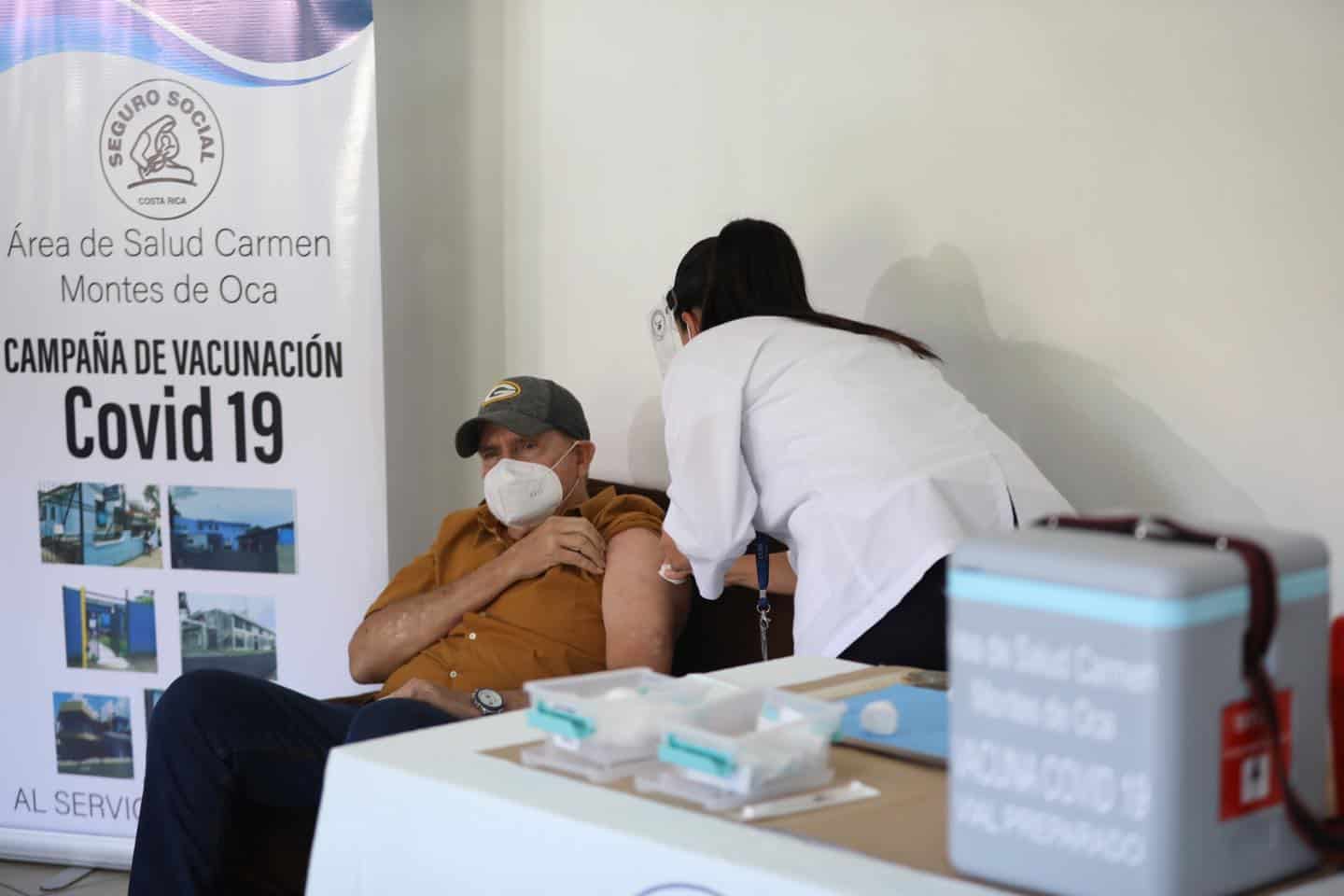Costa Rica will stop offering the first dose of the coronavirus vaccine to elderly adults until April, in an effort to prioritize second doses for that population.
The news was announced Thursday by the Costa Rica Social Security Fund (CCSS, or Caja), which runs the public healthcare system and national vaccine campaign.
“It is essential that people complete the vaccination scheme against Covid-19,” said medical manager Mario Ruiz. “That is why at the Fund we have tried to ensure that this process is continuous and adjusted to the availability of the vaccines that we receive weekly to ensure the second dose.”
The only people who will receive first doses of the vaccine in what remains of March are staff and residents at retirement or nursing homes, and first responders, including health personnel.
Meanwhile, some 128,000 second doses will be administered in older adults (ages 58 and up).
“The technical characteristics of the vaccine that the country currently has are very special and entails very complex logistics in order to meet the objective proposed by the institution of a safe and controlled vaccination day, which allows us to gradually, the individual and collective protection of the population,” Ruiz said.
Costa Rica has received 550,000 doses of the Pfizer/BioNTech coronavirus vaccine and, as of early this week, registered some 250,000 jabs.
Costa Rica has administered 5 doses per 100 people. This places the country behind the United States, Canada, Panama, Chile, Brazil, Argentina and Uruguay on the American continent, according to The New York Times vaccination tracker, despite Costa Rica being among the first countries to start vaccinating.
The Pfizer vaccine requires two doses, with the second coming 21 days after the first. (The U.S. Centers for Disease Control says a 42-day window is “permissible when a delay is unavoidable.”)
Costa Rica hopes plans to vaccinate every eligible adult against Covid-19, including at least 80% of adults in 2021.
The National Commission of Vaccination and Epidemiology, part of the Health Ministry, has indicated the priority for vaccination is as follows:
- First group: Staff and residents at retirement or nursing homes.First responders, including health personnel.
- Second group: Costa Rica’s older population, defined here as those ages 58 and up. It is required to demonstrate residency with a cédula or DIMEX.
- Third group: People from 18-58 with risk factors, including hypertension, diabetes, heart disease, respiratory illness, kidney disease and obesity, among others.
- Fourth group: Teachers and other staff within the Education Ministry (MEP) or private schools. Imprisoned people and judicial staff. Workers for the 911 service.
- Fifth group: Health science students and related technicians in clinical fields. People ages 40-57 without any of the aforementioned risk factors but whose work puts them in contact with others. This includes laborers in agriculture, construction, service industries, etc.
The Caja will contact individuals to schedule their coronavirus vaccine. Those who fall into priority groups should call their local EBAIS (public community health clinic) and ensure their contact information is current.






